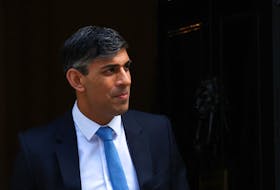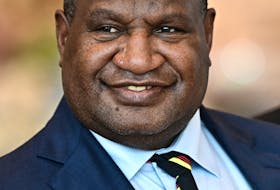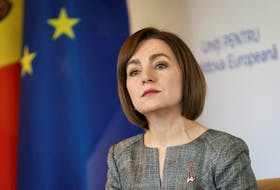WOLFVILLE – Rick Mehta is drawing a line between what may offend some people and what constitutes harassment.
The professor of Psychology at Acadia University has recently garnered both supporters and come under fire for discussions he’s hosted during lectures and comments he’s made on social media on current political issues and topics.
These comments, which include statements arguing a gender pay gap doesn’t exist, that multiculturalism is a sham and that decolonization is a scam, have resulted in personal and sexual harassment complaints from students.
But Mehta wants to make it clear that none of what he has said comes close to harassment, even if it has ruffled a few feathers.
“I’m treating the public as a courtroom and am presenting these ideas as neutrally as possible. If it seems these perspectives are alt-right, it’s only because they don’t reflect mainstream society,” he says.
Offending doesn’t constitute harassing: Mehta
Mehta leaked a letter he received from Acadia’s vice-president academic, Heather Hemmings, which states the university has a “legal responsibility to provide an environment free from discrimination, sexual harassment and personal harassment,” and that the number of student complaints against Mehta provided grounds to investigate these and other topics Mehta has circulated in class, over campus emails and on social media.
Mehta denies these allegations, saying there is absolutely no proof harassment took place.
He also received a letter and an email from Rob Raeside, Mehta’s designated department head, asking him to stop publicly sharing recordings of class lectures, which Mehta had been sharing to show how he raised topics like feminism, when he asked students to ponder whether telling women there are barriers facing them in STEM – science, technology, engineering and mathematics-related fields – was really in their best interests, and whether a gender pay gap truly exists.
Mehta says the request from Raeside infringes directly on his academic freedoms as a professor.
He also maintains these comments, which include statements like, “feminism in places like North America seems hell bent on taking down Western civilization,” are not an assault on true feminism.
Mehta feel the university has zero grounds to investigate him, stating that since his comments were directed at no one student or individual in particular, they are not harassment.
“These have all been objective statements. Are they going to upset some people? Maybe, but then let’s have a discussion about that,” he says.
Residential school comments: ‘all that matters is the truth’
Among the most contentious statements Mehta has made on campus and on social media is his support of federal senator Lynn Beyak, who argued some Indigenous people may have benefitted from the residential school system.
His support drew loud criticism from people like Juno award-winning Inuk musician Tanya Tagaq, who tweeted “Rick, I support free speech. You are under-representing the human race and I pity your students.”
He has also drawn supporters, like Dalhousie philosophy professor Tom Vinci, who wrote a letter of support to Hemmings, stating, “professors must be able to discuss in their classroom their own theoretical approaches without fear.”
Mehta says these controversial ideas are his way of opening students’ eyes to a view opposing what he calls dominant campus narratives.
In a Facebook post, Mehta says the Truth and Reconciliation commission allows for “the past [to be] used for endless demands for financial compensation.”
He believes these narratives are so supported due to a trickle-down effect of liberal university campuses accepting narratives constructed by Prime Minister Justin Trudeau.
“People criticized Harper, and yet no one is criticizing Trudeau, and because he supports this, it’s become a dominant narrative at universities. That is concerning to me,” he says.
‘Does there need to be a line?’
Mehta does not believe his comments have crossed a line and also does not believe he is a voice of dissent based on principle alone.
“I’m not doing dissent for the sake of, it’s just that there are a number of issues where the perspective is biased and doesn’t serve society’s interests,” he says.
“Does there need to be a line? There’s a difference between being offended and being offensive. I might say something, and people may feel offended, but I’m not going out of my way trying to make that happen.”
Mehta also says his statements on social media are objective fact, not opinion, since he uses arguments made by academics like Scott O. Lilienfeld, who refutes the existence of microaggressions, and Erika Christakis, the associate professor at Yale who wrote in an email that she felt students dressed in fake Aboriginal costume for Halloween were only ‘a little bit obnoxious.’
Mehta feels his positions are morally right, and that should he lose his job because of what he has publicly stated, it’ll ultimately be worth it.
“I’m not giving my opinion – these are just another side, another perspective on an issue. People are more than welcome to refute me with real evidence, but that has not happened yet,” he says.
“The university has launched an investigation but has not refuted my claims. It’s entirely without basis and is not acceptable,” he says.
Scott Peterson, a spokesperson for Acadia University, said the university will not be issuing comment at this time.
With files from the Chronicle Herald.









